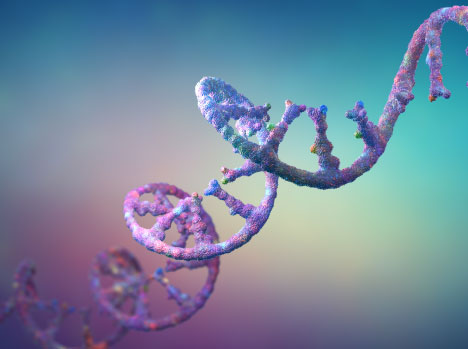Nonprofit standards organization, U.S. Pharmacopeia (USP), has given a talk as part of efforts to raise awareness of its standards for biologics including mAbs and vaccines. USP, which aims to build trust in medicines through public quality standards, says that many small biotechs—especially—are unaware of how standards can de-risk their manufacturing.
“We have an outreach program now to small biotechs,” explains John Kokai-Kun, PhD, director, collaborations, and partnerships, biologics at U.S. Pharmacopeia. “A lot of great innovations come from them, but [financing] is currently tight and they can’t afford to make mistakes so we’re [making them aware] we have [potentially helpful] solutions.”
Kokai-Kun spoke about U.S. Pharmacopeia’s documentary and reference standards, and analytical reference materials at the September 2023 BioProcess International Conference. According to Kokai-Kun, the organization offers an online guide to mAb analytics, which includes documentary standards, educational resources, and ten physical reference standards.
These include USP’s first analytical reference material, a recombinant Phospholipase B-like 2 protein (PLBL2). This, he says, can be used to check that host cell protein (HCP) assays used in mAb manufacturing can detect PLBL2, which often co-purifies with mAb drug products where it acts as a contaminant.
USP is also in the process of collaborating with National Institute for Innovation in Manufacturing Biopharmaceuticals (NIIMBL) to develop best practices for adeno-associated virus (AAV) and other common materials used in gene and cell therapy.
“Cell and gene therapy is a growing area in biologics,” says Kokai-Kun. “But it’s also a wild west with people doing something as simple as [assessing] full-versus-empty capsids in multiple different ways.”
A third recent area of activity is in vaccine quality assessment toolkits, with toolkits available for mRNA, viral vectors, and inactivated vaccines, with a toolkit relating to virus-like particles added last year.

Check out our mRNA service to expedite your vaccine research
Source: https://www.genengnews.com/topics/bioperspectives/u-s-pharmacopeia-raises-awareness-of-biologics-standards/
PackGene Biotech is a world-leading CRO and CDMO, excelling in AAV vectors, mRNA, plasmid DNA, and lentiviral vector solutions. Our comprehensive offerings span from vector design and construction to AAV, lentivirus, and mRNA services. With a sharp focus on early-stage drug discovery, preclinical development, and cell and gene therapy trials, we deliver cost-effective, dependable, and scalable production solutions. Leveraging our groundbreaking π-alpha 293 AAV high-yield platform, we amplify AAV production by up to 10-fold, yielding up to 1e+17vg per batch to meet diverse commercial and clinical project needs. Moreover, our tailored mRNA and LNP products and services cater to every stage of drug and vaccine development, from research to GMP production, providing a seamless, end-to-end solution.
Related News
Exploring Tau Protein’s Role in Glaucoma: New Insights and Therapeutic Potential
Glaucoma, a chronic neurodegenerative disorder, leads to irreversible vision loss by damaging retinal ganglion cells (RGCs) and the optic nerve, often associated with increased intraocular pressure (IOP). Despite the benefits of IOP-lowering treatments, the underlying...
FDA-mandated CAR-T monitoring period could be halved, say researchers
In patients with diffuse large B-cell non-Hodgkin lymphoma (DLBCL), the two hallmark post-chimeric antigen receptor (CAR)-T therapy toxicities are extremely rare after two weeks, supporting a shorter, more flexible toxicity monitoring period, according to a study...
Ancestral CRISPR-Cas13 Ribonucleases Discovered: Implications for Genome Editing
In a pioneering study published in *Science*, a team of researchers led by Peter H. Yoon and Jennifer A. Doudna from the University of California, Berkeley, has made a remarkable discovery in the realm of CRISPR technology. The team has identified an ancestral clade...
KBI Biopharma Expands Manufacturing Contract with Global Pharmaceutical Company
KBI Biopharma Inc., a JSR Life Sciences company and global cGMP contract development and manufacturing organization (CDMO), has extended and expanded its manufacturing contract with a leading global pharmaceutical company. Originally initiated in 2020, the renewed...
Related Services

